The Archean Eon is the second geologic eon in the Earth's history, beginning at the end of the Hadean Eon 3800 million years ago (mya) and extending to the start of the Proterozoic Eon 2500 mya. Unlike more recent eons when life was abundant, the Archean is defined by arbitrary date limits rather than the presence or absence of certain fossils. It would be safe to say that the Archean eon was a very long time ago, as is reflected in its name, which means old.
The origin of life happened sometime in the early Archean, approximately 3.5 billion years ago. This is corroborated by fossil evidence in the form of stromalites, the remnants of simple microorganisms which created thick layers of biotic muck as they died. The Archean begins shortly after a drawn-out series of events called the Late Heavy Bombardment, during which pieces of solar debris which had not yet formed into planets were getting drawn into the gravity well that is the Earth. Some biologists believe that this bombardment was ameliorated by the presence of the massive planet Jupiter, which would have sucked up some of the largest asteroids before they could impact our fragile planet.
In the Archean, the Earth's heat flow was about three times what it is today, and there was no free oxygen, the atmosphere mainly being composed of carbon dioxide. Oxygen was poisonous to most of the microorganisms existing at the time, in fact. Instead of rust, the surface had deposits of free iron. No stable continents existed, rather, they were constantly getting reshuffled as a result of geological activity and cometary impacts.
Some of the world's oldest rocks date back to the Archean, or even before, in the Hadean. According to geologists, only 5-40% of the current continental crust formed during the Archean. Volcanic activity would have been much greater than it is today, and many of the earliest proto-continents were likely formed by huge volcanic eruptions. Due to the large amount of carbon dioxide in the atmosphere, the oceans would have been more acidic than today, and hostile to all but the most extremophilic of present-day organisms.
October 6, 2008
Subscribe to:
Post Comments (Atom)
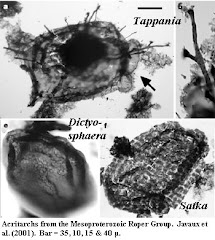
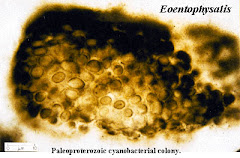
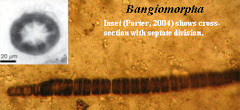
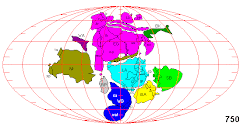


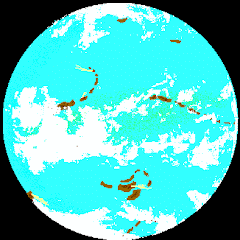
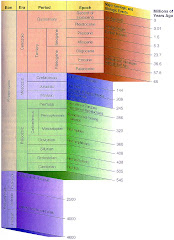
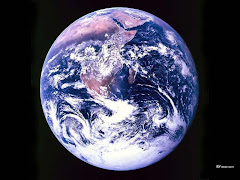
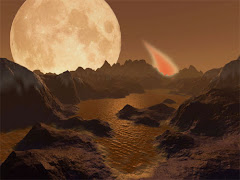
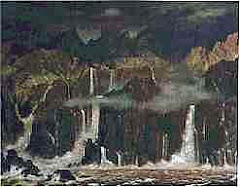
No comments:
Post a Comment